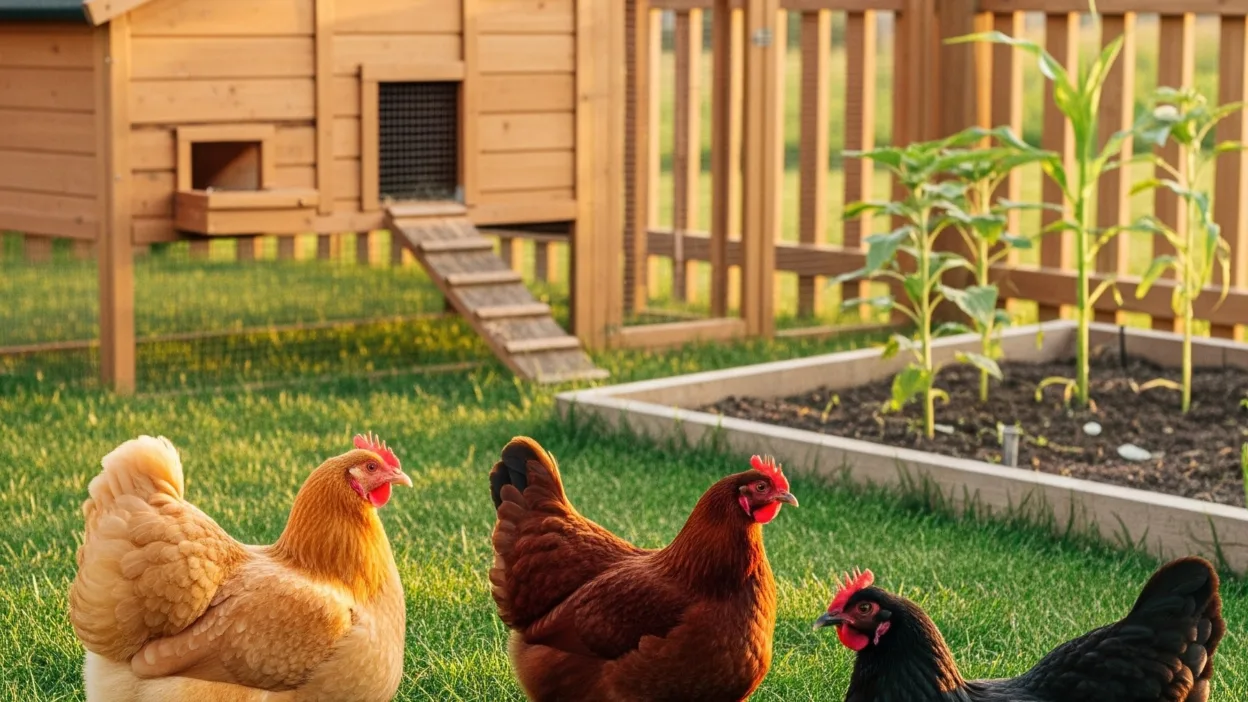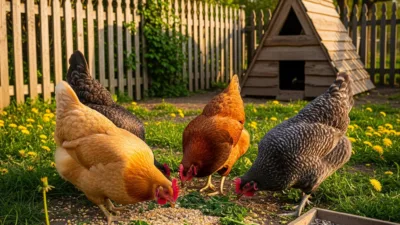Raising chickens at home is a rewarding experience, fresh eggs, natural pest control, and a closer connection to your food. But if you’re new to backyard farming or urban homesteading, it’s important to choose chicken breeds that are beginner-friendly and low-maintenance.
In this guide, you’ll discover the best chicken breeds for first-time keepers, what makes them easy to care for, and how to set up a low-stress backyard coop.
Why Breed Selection Matters for First-Time Chicken Owners
Not all chickens are created equal. Some breeds are more prone to disease, need more attention, or are too aggressive to handle easily.
If you’re starting with a small flock or have limited time, space, or budget, choosing hardy, calm, and self-sufficient breeds is key to a smooth chicken-keeping experience.
Look for breeds that are:
- Cold and heat tolerant
- Docile in temperament
- Reliable egg layers
- Not prone to health issues
- Low grooming and space needs
Top 6 Low‑Maintenance Chicken Breeds for Beginners
1. Rhode Island Red
A classic choice for backyard beginners, Rhode Island Reds are:
- Hardy in most climates
- Consistent egg producers (250–300 eggs/year)
- Independent and active foragers
They’re tough birds that don’t require much pampering, ideal for low-fuss chicken keeping.
2. Plymouth Rock (Barred Rock)
This friendly, dual-purpose breed offers:
- Calm behavior (great with children)
- Good egg production (200–250 eggs/year)
- Cold-hardy with minimal care needs
Plymouth Rocks adapt well to different environments, making them perfect for suburban or rural setups.
3. Buff Orpington
Known as the “golden retrievers of chickens,” Buff Orpingtons are:
- Extremely gentle and friendly
- Quiet and non-aggressive
- Excellent egg layers (180–250 eggs/year)
They’re also well-feathered and do great in colder climates. Just make sure their coop is well-ventilated in summer.
4. Australorp
A cousin of the Orpington, the Australorp is:
- Calm and easy to handle
- Prolific egg layer (up to 300 eggs/year)
- Self-sufficient and quiet
They’re especially good for beginner chicken keepers focused on egg production without fuss.
5. Easter Egger
If you want colorful eggs without added care complexity, Easter Eggers offer:
- Blue, green, and pink egg colors
- Easygoing personalities
- Moderate egg production (200–250 eggs/year)
They’re hardy, friendly, and tolerate various climates plus they bring a splash of color to your egg basket.
6. Sussex
Sussex chickens are underrated gems:
- Curious, gentle, and intelligent
- Lay large brown or tinted eggs
- Forage well and stay healthy with minimal input
With good management, Sussex hens can lay through winter too.
Tips for Raising Chickens with Minimal Effort
To keep chicken care easy, follow these beginner-friendly tips:
- Automate feeding & watering: Use gravity feeders and waterers to reduce daily chores.
- Use deep litter method: It’s a low-maintenance way to manage coop waste and reduce odor.
- Provide predator-proof housing: A secure coop keeps birds safe without nightly worry.
- Let them free-range (if possible): It saves on feed and keeps chickens mentally and physically healthy.
- Choose low-maintenance breeds: As covered above, this is the foundation of easy chicken care.
Urban Chicken Keeping: Yes, It’s Possible
Many cities across the U.S. now allow small backyard flocks. If you’re in an urban or suburban area, check your local ordinances. Breeds like Buff Orpingtons and Australorps are perfect for close neighbors because they’re quiet and friendly.
Even in small spaces, you can raise 3–4 hens and get a steady supply of fresh eggs year-round.
Final Thoughts: Choose Wisely, Start Simply
Starting your backyard chicken journey doesn’t have to be overwhelming. With the right breeds, like Rhode Island Reds, Australorps, and Buff Orpingtons, you’ll enjoy reliable egg production and happy, low-fuss birds.
Focus on simple setup, strong housing, and hardy breeds. Before long, you’ll wonder why you didn’t start sooner.



